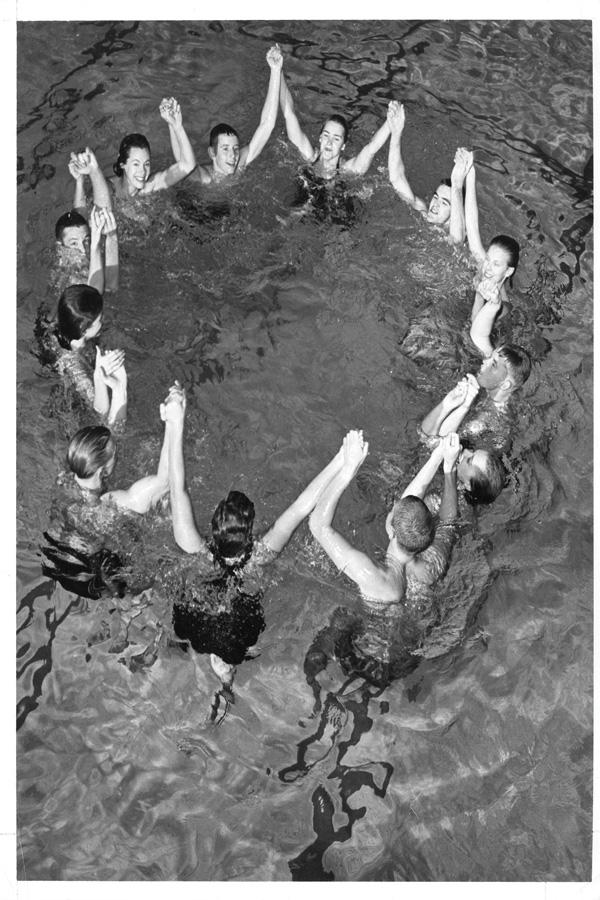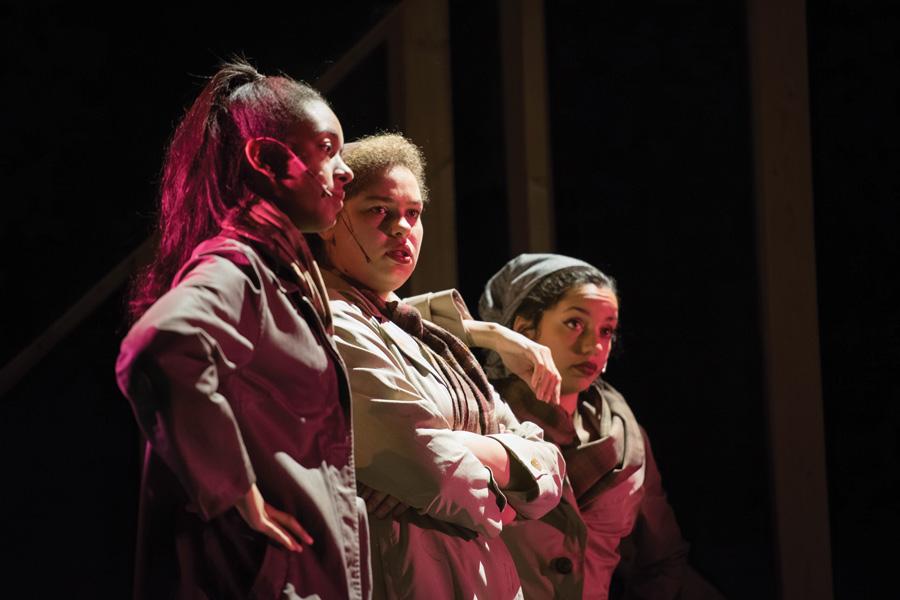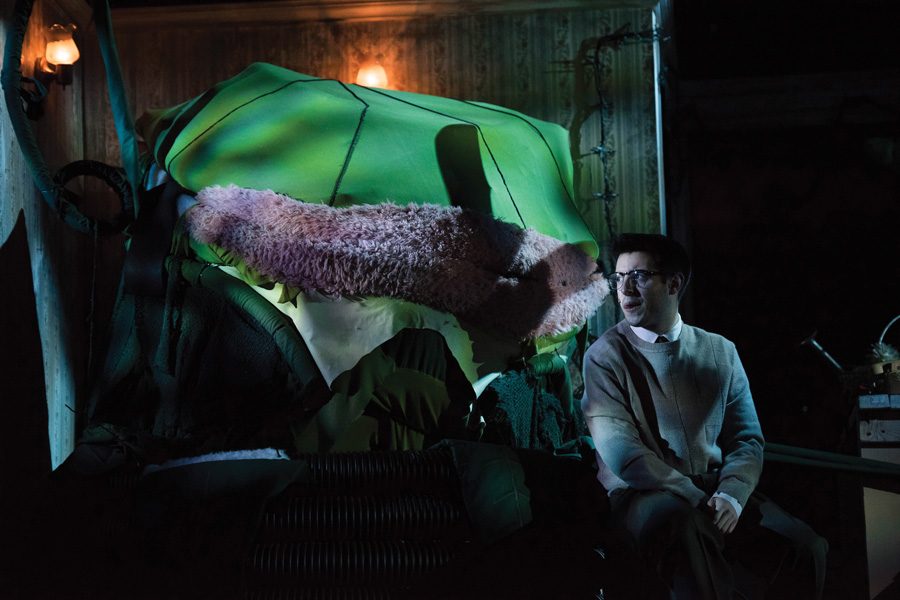Dolphin Show celebrates history in its 75th year
Katie Pach/Daily Senior Staffer
Alex Schneidman and his leafy costar rehearse for the upcoming production of “Little Shop of Horrors.” The 75th annual Dolphin Show opens Friday in Cahn Auditorium.
January 18, 2017
Born in a campus pool 75 years ago, the Northwestern Dolphin Show now features less water and more foliage — specifically, a huge, operable model of a carnivorous Venus flytrap for its latest production, “Little Shop of Horrors.”
The Dolphin Show, a longstanding NU tradition that is the currently the largest student-produced musical in the country, will stage its 75th production starting this weekend.
The show began as a 1940 fundraiser for the Dolphin Club, a men’s swim team, and soon became an annual aquatic spectacular.
Bob Nissen (Weinberg ’71, Kellogg ’75) swam as part of the “water cast” in two productions at Patten Pool before becoming co-chair, spearheading the campaign to move Dolphin Show out of the pool and onto the solid ground of Cahn Auditorium. After selling exactly enough tickets to break even, Nissen’s production of “Mame” established a new tradition of dry Dolphins.

Members of the 1968 aquatic cast perform in the musical “South Pacific.” The Dolphin Show was held in and around Patten Pool until 1970.
“It was new, it was innovative, it was risky in some respects — but everyone came together,” Nissen said. “The excitement of being there opening night, Feb. 6, 1970, and watching the performance and seeing the audience reaction … was really the highlight.”
Forty-seven years after that first Cahn production, current Dolphin director Maggie Monahan said she and her team wanted to bring new energy to the show by taking on something with intellectual depth as well as production value. They settled on “Little Shop,” an off-Broadway horror-comedy that centers around a struggling flower shop and a carnivorous flytrap, for the 75th anniversary “Diamond Dolphin” celebration.
The Communication senior said “Little Shop” brings up themes that are relevant today, even though the original movie was produced in the 1960s.
“‘Little Shop’ confronts class, race and the perversion of the myth of American meritocracy, all while lampooning B-horror movies (and) musicals themselves,” Monahan said. “We’re trying to deconstruct and poke holes in a lot of these myths upon which our society is founded.”
Monahan, artistic producer Bailey Sutton and business producer Janie Dickerson make up one of very few all-women leadership teams in Dolphin Show history. All three agreed that this feminine perspective shaped their vision for the show, especially in the portrayal of its female characters.

Performers take the stage in the roles of the three narrators. Director Maggie Monahan said she is trying to bring more depth and complexity to these and other female characters.
Sutton, a Weinberg senior, said their production sought to bring more depth to the female lead Audrey and the three female narrators, who she said are often reduced to stereotypes.
Though “Little Shop” has been reproduced many times onstage and onscreen — and is slated for another feature film adaptation, directed by Northwestern alumnus Greg Berlanti (Communication ’94) — Monahan said many interpretations are “meaningless or entirely insensitive.”
“There’s great, great heart in it that oftentimes gets treated as camp,” she said.
One of the Dolphin leaders’ goals for this rendition of “Little Shop,” Monahan said, is to bring out the play’s earnestness instead of just presenting it as satire. More tangible changes also included expanding the cast to nearly double its normal size and casting a woman as the traditionally male voice of the plant.
The show’s timing has forced the cast and crew to confront a divisive political climate, Monahan said. She said there was a “cosmic poetry” to the date of the show’s first rehearsal, which was the day after the presidential election. The show’s first performance will be the night of Donald Trump’s inauguration.
“I really think it’s important that we have an artistic space where people can contribute to the (post-election) discourse,” Dickerson said, “and also a space to grieve and laugh and feel their emotions.”
This inclusivity extends beyond the traditional theater community. Sutton said the Dolphin Show is structured so that anyone who wants to get involved will be given the opportunity to contribute.
The show also held its first open call audition this year in addition to the normal Student Theatre Coalition casting. Sutton said 28 people came to the open call, two of who ultimately took on acting roles.
As a non-theater major herself, Sutton said the process was especially meaningful.
“I was a freshman that was rejected from every single group on campus,” Sutton said. “The fact that I was able to find a place in a community and eventually an organization where we accept everyone was really exciting for me.”
Sutton said inclusion and willingness to adapt have helped Dolphin Show survive and grow through its 75 years.
Dickerson added that the sheer scale of Dolphin Show continues to attract talent because it allows designers and other artists to “think outside the bounds of Shanley,” one of the smaller venues on campus.
“Dolphin thrives and endures because Northwestern students are unparalleled in their ambition and scrappiness and readiness to try something big,” Monahan said. “This is an entirely unlikely feat, and we relish that.”
Email: madelineburakoff2020@u.northwestern.edu
Twitter: @madsburk



